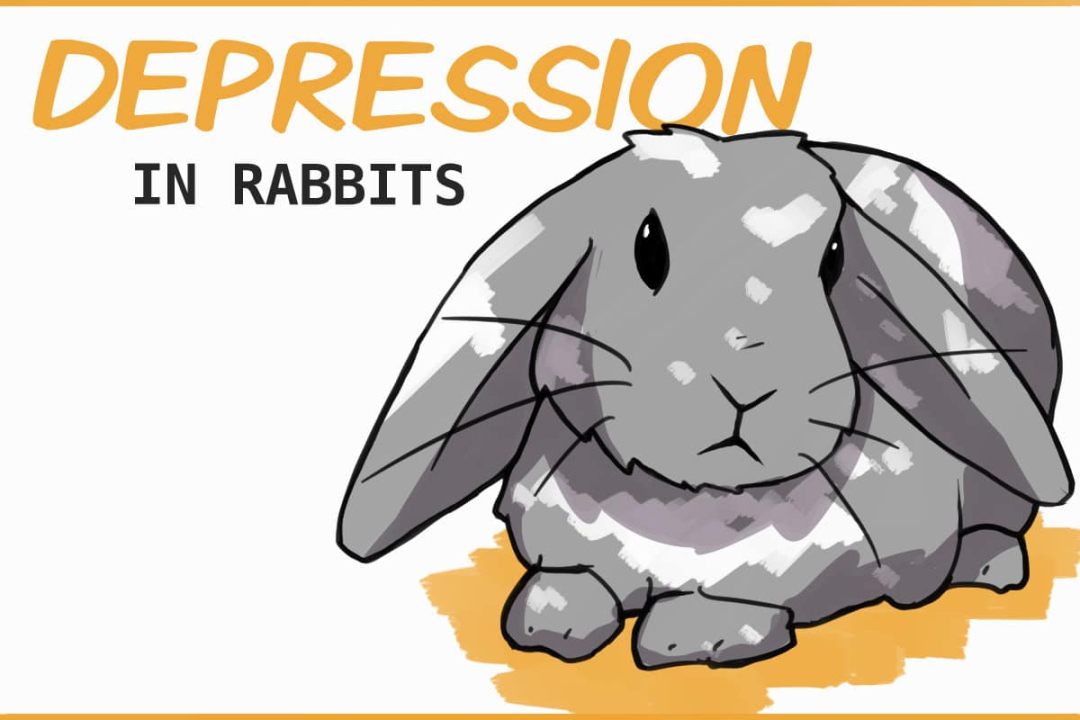Is My Rabbit Depressed?
As a rabbit owner, it is important to be aware of your rabbit’s mental well-being. Just like humans, rabbits can experience periods of sadness or depression. However, it can be challenging to determine if your rabbit is truly depressed or if there is another underlying issue causing their behavior. In this article, we will explore the signs of rabbit depression, its possible causes, and how to help your rabbit if they are experiencing this condition.

Signs of Rabbit Depression
Depressed rabbits may display a variety of signs that indicate their emotional distress. Keep in mind that some of these signs can also be indicative of other health issues, so it is crucial to consult with a veterinarian to rule out any underlying medical conditions. Here are some common signs of rabbit depression:
- Loss of appetite or weight loss: A depressed rabbit may lose interest in eating, resulting in weight loss.
- Decreased activity: If your rabbit is less active than usual and spends most of their time lying down or hiding, it could be a sign of depression.
- Lack of grooming: Rabbits are meticulous groomers, so depressed rabbit may neglect their grooming habits, resulting in a disheveled appearance.
- Unusual aggression or irritability: Depression can affect a rabbit’s behavior, causing them to become more aggressive or easily irritated.
- Excessive sleeping: While rabbits do sleep a lot, an increase in sleeping or lethargy can be a sign of depression.
- Withdrawal from social interaction: If your rabbit avoids social interaction with you or other rabbits, it may be a sign of depression.
- Changes in litter box habits: A depressed rabbit may stop using their litter box consistently or start urinating/defecating outside of it.
Possible Causes of Rabbit Depression
Understanding the potential causes of rabbit depression can help you identify triggers and prevent or address the issue effectively. Here are some common causes of rabbit depression:
- Lack of mental stimulation: Rabbits are intelligent creatures that need mental stimulation to thrive. Boredom can lead to depression.
- Loneliness: Rabbits are social animals and need companionship. Lack of interaction with other rabbits or humans can result in depression.
- Changes in the environment: Rabbits are creatures of habit, and significant changes in their environment, such as moving to a new home, can cause stress and depression.
- Lack of exercise: Regular exercise is essential for a rabbit’s physical and mental well-being. Insufficient exercise can contribute to depression.
Health issues: Certain health conditions, such as dental problems or chronic pain, can lead to depression in rabbits.
How to Help a Depressed Rabbit
If you suspect that your rabbit is depressed, there are several steps you can take to help improve their well-being:
- Offer mental stimulation: Provide your rabbit with toys, tunnels, and puzzles to keep them mentally engaged and prevent boredom.
- Ensure companionship: If your rabbit is lonely, consider getting them a compatible rabbit companion or spending more time interacting and bonding with them.
- Maintain a stable environment: Minimize major changes in your rabbit’s living space and establish a consistent routine to reduce stress and promote stability.
- Encourage exercise: Provide plenty of space for your rabbit to run, jump, and explore. Regular playtime and supervised outdoor time can also be beneficial.
- Address health issues: If you suspect your rabbit’s depression is related to a health problem, consult with a veterinarian for a proper diagnosis and treatment plan.
Remember: If your rabbit’s depression persists or worsens despite your efforts, it is crucial to consult with a veterinarian who specializes in rabbit care. They can provide a thorough examination and recommend further steps to improve your rabbit’s well-being.
Frequently Asked Questions (FAQs)
1. Can rabbits really get depressed?
Yes, rabbits can experience depression. They are highly sensitive animals and can be affected by changes in their environment, lack of mental stimulation, or loneliness.
2. How can I tell if my rabbit is just sad or truly depressed?
It can be challenging to differentiate between sadness and depression in rabbits. Look for signs such as loss of appetite, decreased activity, withdrawal from social interaction, or changes in litter box habits. Consult with a veterinarian for a proper diagnosis.
3. Will getting another rabbit as a companion solve my depressed rabbit’s issues?
Introducing a compatible rabbit companion can often help alleviate depression in rabbits. However, it is important to introduce them slowly and under supervision to ensure they get along well.
4. How long does it take for a depressed rabbit to recover?
The recovery period for a depressed rabbit can vary depending on the underlying cause and the individual rabbit. With appropriate care, mental stimulation, and companionship, many rabbits show improvement within a few weeks to a couple of months.
Related Articles…
Copyright Notice:
All images on this website are obtained from the internet and remain copyrighted to their original owners. If you hold copyright to any image and want it taken down, please reach us.